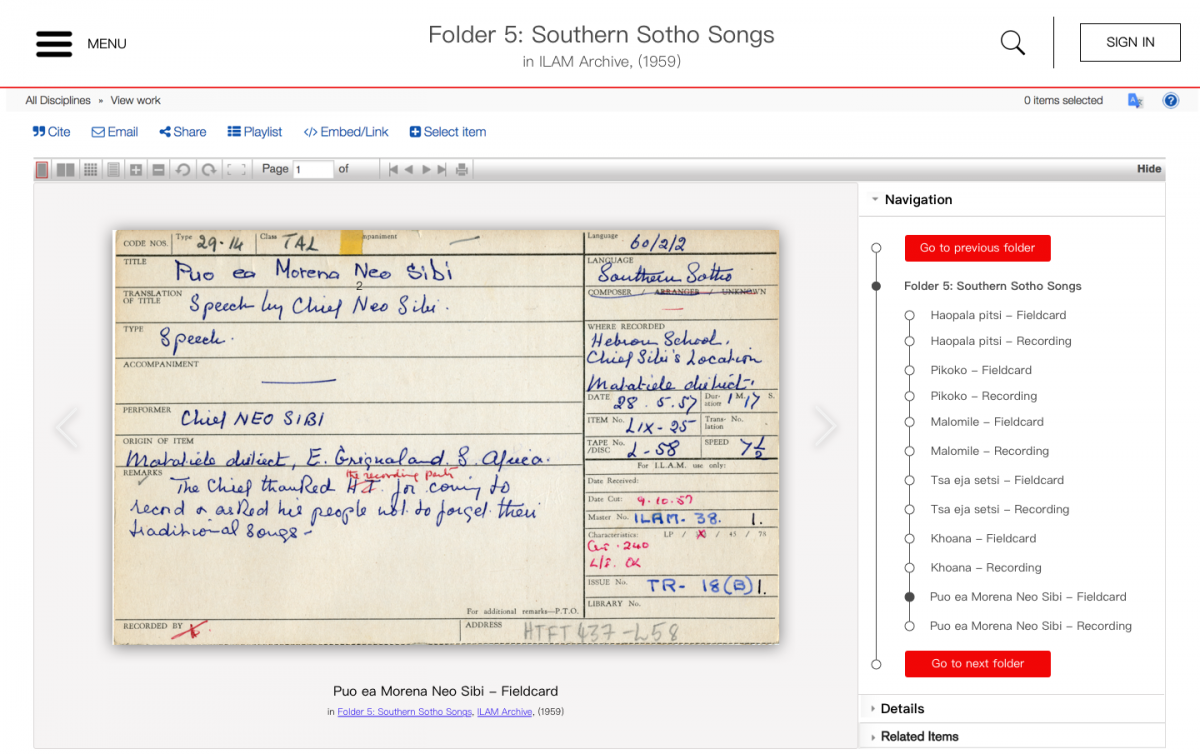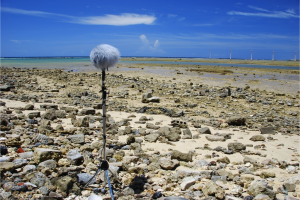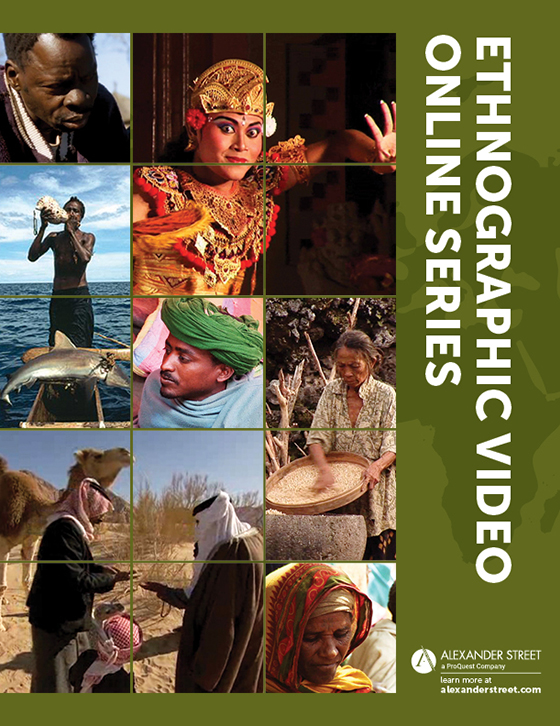
Ethnographic Sound Archives Online
Ethnographic Sound Archives Online brings together previously unpublished historic audio recordings and their supporting field materials, opening new paths for the study of music in its cultural context. The collection brings together over 6,000 audio recordings from field expeditions around the world, particularly from the 1960s through the 1980s—the dawn of ethnomusicology as a codified discipline.
Building on their predecessors’ early sound collecting methods, ethnomusicologists began to fill in gaps on the world music map, traveling to field sites to record and document music in its broader cultural context. These collectors’ bodies of work contain some of the most comprehensive surveys of regional music on record, including Mark Slobin’s survey of Afghan music, Nazir Jairazbhoy’s survey of classical Indian music, and Hugh Tracey’s survey of southern and central African music.
The practice of going into the field to “collect” music dates to the early 20th century, as innovations like the portable phonograph enabled sounds to be recorded on wax cylinders. In response to a growing commercialized music industry, and tied to the Romantic Era notion of disappearing cultures, early field workers such as Frances Densmore and Alan Lomax traveled to remote areas to document and preserve everyday songs and language. By the 1960s, sound collectors began incorporating theories and methods from cultural anthropology—and ethnomusicology as an academic field of study was born.
Curation
Music is tightly woven into society and culture — it accompanies rituals and dances, and fills social spaces. It is the goal of the ethnomusicologist to document sound in this broader context, so field recordings are often accompanied by film footage, photographs, handwritten notes, and records of the larger soundscape. Where possible, the audio in this collection is presented along with its contextual materials, totaling more than 10,000 pages of field notes and 150 hours of film footage, re-creating music’s relationship to its cultural context in a digital space.
Content is published in cooperation with archives such as the World Music Archives at Wesleyan University, the Center for Ethnomusicology at Columbia University, the International Library of African Music, the Pitt Rivers Museum of Oxford, the Archives and Research Centre for Ethnomusicology at the Institute of Indian studies, and the Okinawa Island Archive at the Granada Centre for Visual Anthropology, University of Manchester.
Access

Archival curation is approached as comprehensively as possible, with the inclusion of full boxes, folders and series where possible. The Alexander Street platform enables users to mimic a live archive research experience in a digital space. Content and metadata are presented in original finding aid order, with box, folder and document organization maintained in digital form. In cases of missing documents, dummy records and metadata will point researchers to the original source.
Ethnographic Sound Archives Online is a key component of the Anthropology Resource Library package, along with the following collections:
-
Anthropological Fieldwork Online
-
Anthropology Online
-
Ethnographic Video Online Volumes I & II: Foundational Films
-
Ethnographic Video Online Volume III: Indigenous Voices
-
Ethnographic Video Online Volume IV: Festivals & Archives
-
Ethnographic Video Online: Royal Anthropological Institute Teaching Edition
Archival Collections

The Mark Slobin Fieldwork Archive, Music in the Afghan North, 1967-1972 (World Music Archives, Wesleyan University)
One of only four Western music scholars allowed into Afghanistan in the late 1960s, Mark Slobin's body of work is a comprehensive documentation of music, culture, language, and society in the Afghan North. Completed less than a year before the Soviet invasion of Afghanistan and subsequent anti-musical Taliban takeover, the historical significance of this project lies not only in its comprehensive coverage of the musical landscape of the region, but in its "time capsule" nature. No further musical, and by extension cultural, studies have been undertaken since, given the region's volatile unrest. Learn More about Slobin's archive in this recent blog post from Wesleyan University. The full repository of Mark Slobin's field research in Afghanistan, including field recordings from his survey of music in the Afghan north along with contextualizing field notes, photographs, film footage, and background text.
The Nazir Ali Jairazhboy Archive (The Archives and Research Center for Ethnomusicology, American Institute of Indian Studies)
Curated selections from Nazir Ali Jairazhboy's lifelong research documenting the diversity of musical styles and genres across India and Pakistan. His field recordings represent one of the most comprehensive surveys of Indian music taken in the second half of the 20th century, and builds on the foundational research laid by Arnold Bake in the 1930s. Selections include Jairazbhoy's Bake 1938-39 restudy, along with contextualizing field notes, diaries and text.
The Sound of Africa Series (International Library of African Music, Rhodes University)
The Sounds of Africa series is the most comprehensive collection of field recordings from Central, Eastern and Southern Africa, a vast survey of musical genres and cultures. Hugh Tracey began studying African music in 1921, when he arrived from Devonshire, England in Southern Rhodesia (now Zimbabwe). He soon developed a love for their music and was convinced of the enormous value of music in their lives. Almost immediately, however, he became aware of the resistance of the colonial community, in particular those in education, the church and government, to any suggestion that Africans had any culture or music that was worthwhile. He knew from personal experience that this attitude was mistaken, and this was the trigger for his life’s work. Presented in original finding aid order, each recording is accompanied by Tracey's original handwritten field notes and field data.
The U.S.A. South Negro Folklore Collection, Music from the American South (Center for Ethnomusicology, Columbia University)
This historically significant collection documents African American music and language in the Jim Crow South, with a focus on urban communities rarely documented at the time. Recorded by Walter Garwick between 1935-1937, the collection includes spirituals, hymns, and gospel music; Gullah prayers, sermons, tales, Br'er Rabbit stories, and vendors' street cries; spells, remedies, and tales; dialect and folk plays; and some secular and children's songs. In its geographic diversity and range of musical and rhetorical idioms, this collection provides a strikingly different perspective on the sound of the African American south than other field recordists of the same era.
The Louis Sarno Archive, Music from the Central African Rainforest (Pitt Rivers Museum, University of Oxford)
This collection of Bayaka music is the largest and most comprehensive collection documenting the music, soundscapes and cultural landscape of one of the world's last remaining traditional hunter-gatherer societies. Drawn to the rainforests of the Central African Republic by some of the most beautiful singing in the world, New Jersey native Louis Sarno traveled there in 1985 with a one-way ticket and a tape recorder. His recordings reflect a 30-year immersion in the community and way of life. The collection will contain nearly 1,000 hours of field recordings, along with photographs and multimedia interviews with the ethnographer. Sarno has recorded every aspect of music making and soundscapes among the Bayaka, from polyphony during extended boyobi, ejengi and hunting rituals to the full range of instrument playing that includes earth drums, tree drums (gooma), water drums, rasping earth bows, and pot bows (bulubu). There are also rainforest soundscapes documenting the relationship between music and the wider rainforest acoustic environment. The recordings have been catalogued in partnership with ethnomusicologist Noel Lobley.
Okinawa Island Archive (Granada Centre for Visual Anthropology, University of Manchester)
The recordings presented in this archive are the result of interdisciplinary, collaborative research carried out across Okinawa between 2007 and 2019 by Kozo Hiramatsu, Rupert Cox and Angus Carlyle and separately by Nicholas Friedman between 2016 and 2022. They represent a curated selection of recordings which offer a particular description of environmental sound in Okinawa, in terms of locations, events, practices and behaviours at the human and animal species levels. What is meant by ‘environmental sound’ in this research, began for Hiramatsu, Cox and Carlyle as a question about noise, specifically the noise emanating from the US military bases constructed on Okinawa in the aftermath of the Pacific war.Testimonials
I never returned to Afghanistan [so] the material presented in this project is something of a fly in amber....The tragic history that has flooded Afghanistan with waves of violence, civil war, and external intervention began with the Soviet invasion of 1979 and shows no signs of ending. Some of my collaborators were killed by various regimes, … causing great disruption to a music culture that has only partially rebounded since the defeat of the anti-musical Taliban and the American intervention of 2001.
Mark Slobin Professor of Music Emeritus, Wesleyan University
The collection should appeal to students of African American culture, history, literature, folklore, education, and religion. The lack of detailed documentation is frustrating, but also creates an aura of discovery around listening to these recordings, of being forced to decipher the sounds themselves, and of wondering who might still lay claim to these recordings as their family’s or community’s or institution's heritage. Our hope is that by releasing this set of recordings to a broader public, we can 'crowdsource' the work of returning these materials to their diasporic source communities, discovering its connections to living people and communities and institutions and musical practices, and allowing these mysterious old sounds to be reanimated through their rediscovery.
Aaron Fox Professor of Ethnomusicology and Director of the Center for Ethnomusicology, Columbia University







